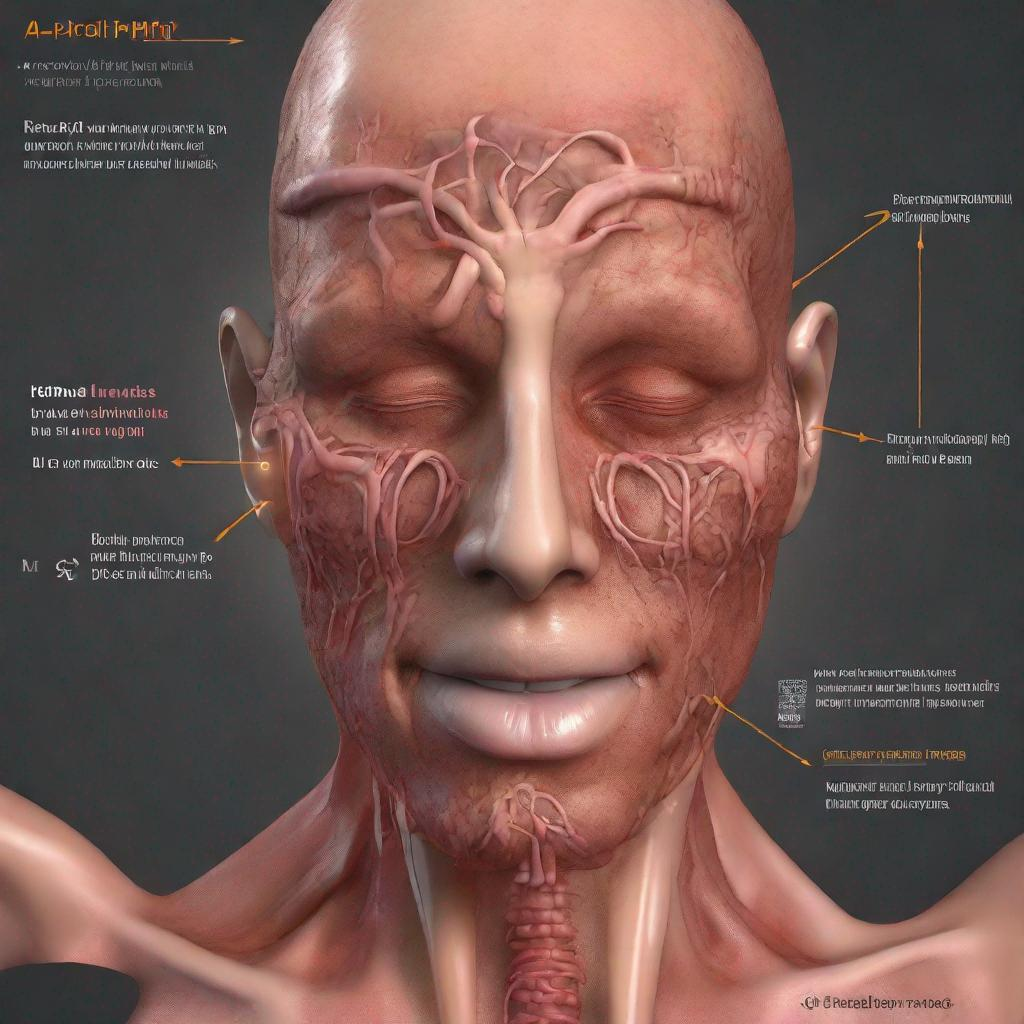# Multiple Sclerosis: A Comprehensive Guide
## Introduction
Multiple sclerosis (MS) is an autoimmune and chronic inflammatory condition that affects the central nervous system (brain, spinal cord, and optic nerves). It is characterized by episodes of inflammation and demyelination, which is the damage or loss of the protective myelin sheath surrounding nerve fibers.
## Symptoms
* **Body Parts:** Central nervous system, brain, spinal cord, optic nerves
* Sensory symptoms: Numbness and tingling, weakness
* Physical symptoms: Fatigue, spasticity, tremors
* Visual symptoms: Vision problems
* Cognitive symptoms: Cognitive difficulties, memory problems
* Emotional symptoms: Mood swings, depression, anxiety
## Diagnosis
* **Physical examination:** Neurological examination to assess symptoms
* **Magnetic resonance imaging (MRI):** Non-invasive imaging test to detect lesions in the central nervous system
* **Lumbar puncture:** Spinal tap to collect cerebrospinal fluid for analysis
* **Nerve conduction studies and electromyography:** Tests to evaluate nerve and muscle function
## Prevention
There is currently no known way to prevent MS.
## Risk Factors
* **Age:** Most commonly diagnosed in people aged 20-40
* **Gender:** Women are more commonly affected than men
* **Family history:** Having a family member with MS increases the risk
* **Geographic location:** More common in temperate climates
* **Certain infections:** Epstein-Barr virus infection may be a risk factor
## Treatment
* **Immunomodulatory therapies:** Medications that suppress the immune system and reduce inflammation
* **Disease-modifying therapies:** Medications that slow the progression of MS and reduce relapse rates
* **Symptom management medications:** Medications to alleviate specific symptoms, such as pain, fatigue, and spasticity
* **Rehabilitation therapy:** Physical therapy, occupational therapy, and speech therapy to improve mobility, daily function, and communication
## Prognosis
The course of MS varies widely from person to person. Some people may experience mild symptoms that do not significantly impact their daily life, while others may have severe and debilitating symptoms that require ongoing medical care.
## Complications
* **Axonal damage:** Degraded nerve cells can lead to permanent neurological damage
* **Cognitive decline:** MS can cause cognitive difficulties and memory problems
* **Depression and anxiety:** The symptoms and uncertainty of MS can contribute to emotional distress
## Related Health Conditions
* **Myelin:** Myelin is the protective sheath around nerve fibers. MS damages myelin, impairing nerve function.
* **Oligodendrocytes:** Oligodendrocytes are the cells responsible for producing myelin. MS affects the function of these cells.
* **Dementia:** Severe and progressive MS can lead to cognitive impairment and dementia.
* **Spinal cord injury:** MS lesions in the spinal cord can cause weakness, numbness, and impaired sensation below the level of the lesion.
* **Visual impairment:** Optic nerve damage in MS can lead to blurred vision, double vision, and other visual impairments.




